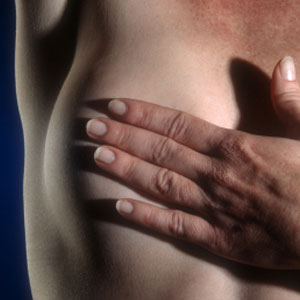
Breast cancer remains a major health concern for women worldwide. In South Africa, one in 29 women will be diagnosed with breast cancer during their lifetime, according to the South African National Cancer Registry.
The good news is that women now have an 89% chance of surviving five years after diagnosis. In fact, over the past few decades, breast cancer has become a very survivable disease. Many women go on to live another 30-40 years after diagnosis.
A cancer diagnosis is also no longer synonymous with losing the affected breast or breasts. Reconstruction methods have advanced to such an extent that surgeons can construct near-perfect breasts by using tissue from other parts of the body, giving the breast-cancer patient a little nip, tuck and lift at the same time.
What, exactly, is breast cancer?
Breast cancer is a general term for different types of cancer that develop from breast tissue cells which, for some reason, grow abnormally and multiply, ultimately spreading to the rest of the body.
The causes of breast cancer are mostly unknown but may include several genetic, environmental, nutritional and hormonal factors.
Symptoms of breast cancer aren’t obvious in the early stages, and any changes in the breast should be monitored, especially if there are breast lumps, changes in nipple appearance, swelling under the arm or unusual nipple discharge.
Early diagnosis of breast cancer is possible with routine mammography and early biopsy of suspicious lumps or lesions.
The latest research
Worldwide, researchers are searching for clues to the causes of breast cancer, while exploring new prevention strategies and treatment options. A few important findings include the following:
1. The success rate of new hormonal treatment for breast cancer is very promising. Studies show that women who received hormonal treatment immediately after diagnosis and prior to surgery experienced such marked shrinkage of the lump that half of all patients who were earmarked for a mastectomy (complete removal of the breast) needed only a lumpectomy (removal of the lump, while saving the breast).
2. Research shows that new adjuvant therapy (treatment given after surgery) with aromatase blockers can stop breast cancer as well as or even better than tamoxifen – an anti-oestrogen drug used to prevent oestrogen-positive breast cancer from spreading to other parts of the body or to treat breast cancer that has already spread to other parts of the body. This is important, as the drugs have different types of side effects.
3. Although it’s still a hotly debated topic, researchers are finding that it might not be necessary to cut out all cancerous glands in cases where breast cancer has spread to glands surrounding the breast. The recently published AMAROS trial indicated that removal of the so-called “sentinel” gland – the first lymph node or nodes in the armpit to which breast cancer can spread – is highly effective in treating breast cancer, especially when combined with radiotherapy.
4. The newest “silver bullet” in doctors’ treatment arsenal is T-DM1, a three-pronged combination drug that interferes with cancer cell growth in a targeted way. It attaches very specifically to the cancer cell and releases a potent dose of chemotherapy within the cell, while sparing normal tissue. In one study group, T-DM1 increased survival rates in late-stage cancer patients by 50%. However, much more work needs to be done before the use of the experimental therapy – a completely new model for attacking cancer – can be widely implemented.
Risk factors
- Women who carry the BRCA1 gene, which is also responsible for ovarian cancer, are more at risk of developing breast cancer. However, women who don’t carry the gene, but fall into one of the following categories, are also at risk:
- Those who have a strong family history of breast cancer, especially a mother or a sister who had breast cancer before the age 50
- Women who have family members who have tested positive for the gene
- Older women who have been on hormone replacement medication for more than 2 years
- Women with a high mammographic density
- Women who become pregnant for the first time over the age of 35
- Women who’ve never had children
- Women who started menstruating before the age of 12
- Women who drink more than one alcoholic beverage per day
- Women who have had radiation therapy to the chest area before
Self-examination
Early detection of breast cancer is the key to effective treatment. That is why experts encourage all women to begin self-examination and routine mammograms from the age of 40 or earlier if you have particular risk factors.
See how to do a breast self-examination, step by step.
- (Health24, November 2013)



 Publications
Publications
 Partners
Partners











